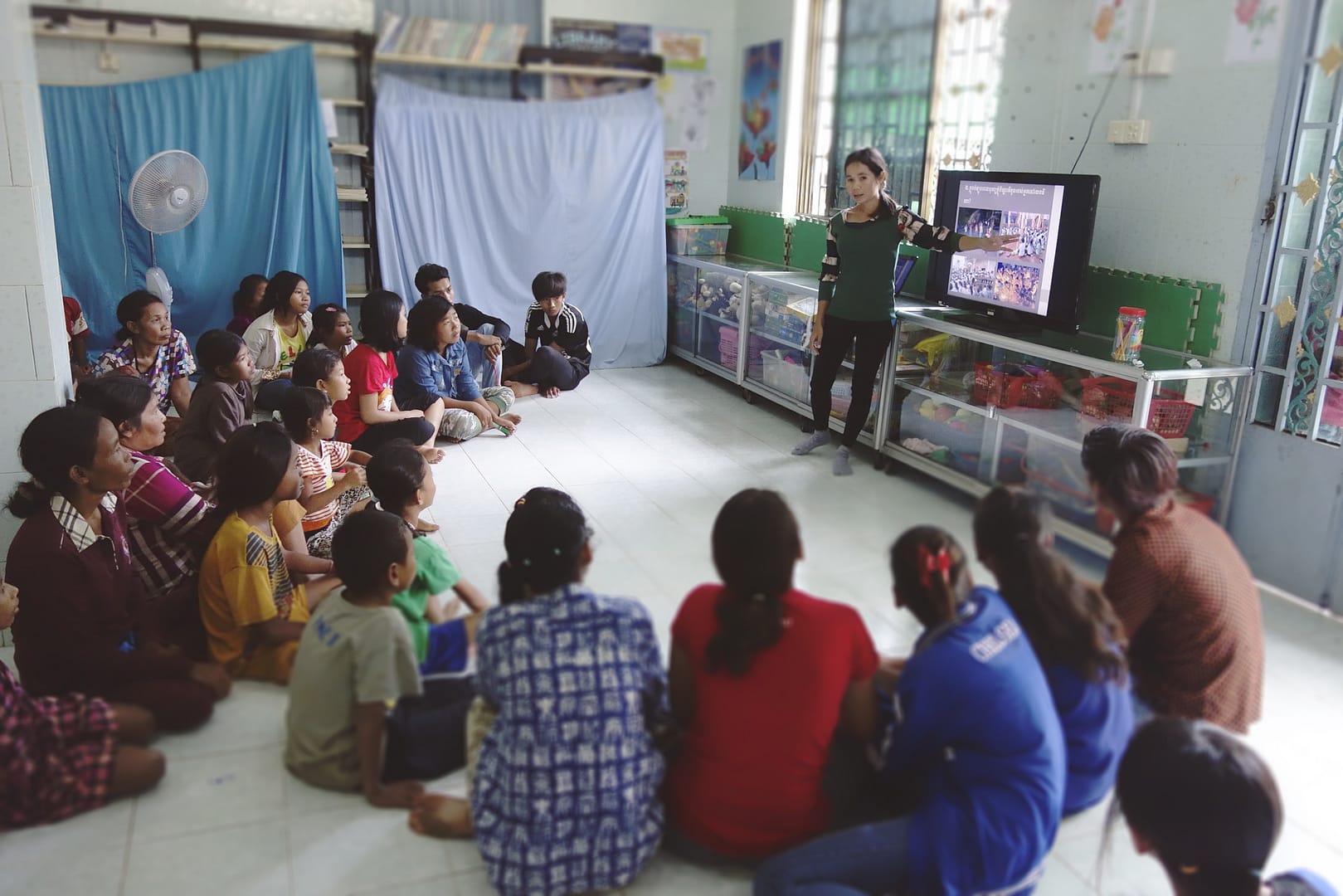One of our social workers, Hour, has started implementing interactive group workshops with students and their families together at the Learning Center. Hour says that she takes the topics–which include include domestic violence, reproductive health, child trafficking, and life skills– from recurring problems that she sees in the community.
When so many families are having the same problems, there is an opportunity for collective problem solving and group support. These workshops act as a support group among families and a venue for families and students to share their own experiences and create solutions together. By teaching each other and working collectively to solve problems, these workshops create a model for community building that can be taken from the Learning Center back out into the community.
In addition to helping families work together to solve these problems, the workshops have also proven extremely valuable in helping families reinforce the skills and values that social workers teach the children. One of the most critical problems that many of our students face is the pressure from their families to migrate to Thailand, where most students and families fall victim to traffickers.
“Family workshops have been really successful,” Hour says, “The family of one student had already decided and informed the social work team that their child would be dropping out of school and going to work on the Thai border. They agreed to attend the workshop, though, and after the workshop they decided to keep their student enrolled in school. She is still attending the Learning Center and going to school.”
Hours understands that providing workshops to students alone is ineffective. The decision to stay in school includes the whole family, so it is necessary to involve and educate parents and caretakers. If students are getting positive reinforcement from social workers as well as from within their own home, the risk of them dropping out in the future decreases significantly.
When asked about success stories, Hour had many. One student, classified at urgent risk level due to consistent domestic violence, attended a workshop about domestic violence with his family. Since then, instances of violence in his home have significantly dropped. Before a reproductive health workshop many of the mothers of students were uncomfortable talking about reproductive health and unable to seek knowledge and resources. Since the workshop, women have been coming to Hour with questions and concerns and are more comfortable openly discussing reproductive health issues.
This holistic approach to student and community needs is what makes Children’s Future unique.
Prior to her two years working at Children’s Future as a social worker, Hour worked at a reproductive health clinic and provided workshops to women and families. She says she implemented the group workshop model at Children’s Future because she recognizes how important it is for people to have the knowledge to take care of their health.


Leave A Comment